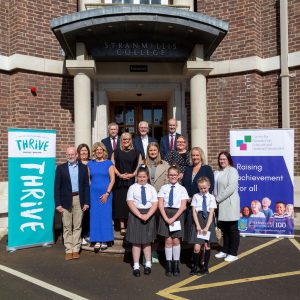 On the 4th June 2024, THRiVE and their Learning Partnership team from Stranmillis University College’s Centre for Research in Educational Underachievement (CREU) – Dr Karen Orr, Prof. Noel Purdy, Dr Millie Symington & Dr Mark Ballentine – hosted a two-day conference at Stranmillis University College, attended by thought leaders, practitioners, and policy makers from across sectors in NI.
On the 4th June 2024, THRiVE and their Learning Partnership team from Stranmillis University College’s Centre for Research in Educational Underachievement (CREU) – Dr Karen Orr, Prof. Noel Purdy, Dr Millie Symington & Dr Mark Ballentine – hosted a two-day conference at Stranmillis University College, attended by thought leaders, practitioners, and policy makers from across sectors in NI.
The organisers were delighted to have been joined by and to hear from Junior Ministers Pam Cameron and Aisling Reilly, and Justice Minister Naomi Long.
They also welcomed input, via video, from Ministers Paul Givan (Education), Mike Nesbitt (Health), Gordon Lyons (Communities), and Caoimhe Archibald (Finance), who shared their support for the place-based collaboration model evidenced by THRiVE and the need for government and other sectors to work together.
Throughout the jam packed two days, the conference heard from a range of speakers who spoke to different aspects of relevance to the theme of ‘collaborating for impact’.
Speakers included Claire Humphrey, (THRiVE Co-ordinator); Dr Karen Orr (THRiVE Learning Partnership Principal Investigator); Prof. Noel Purdy OBE (CREU Director and THRiVE Learning Partnership team); Young people from Monsktown Boxing Club; Chris Quinn, the NI Children’s Commissioner; Prof. Allisson Metz (implementation science expert from University of North Carolina, USA); THRiVE parent champions (Mary Dripps and Lorna Allison); Jo Blundell from Place Matters; and Dorrinnia Carville, NI Comptroller General.
Additionally, Hugh Nelson (Co-Chair THRiVE) led an informative panel discussion with Collaborative Investors from THRiVE which included representatives from the Education Authority, The Executive Office, Antrim & Newtownabbey Borough Council, and the Executive Programme on Criminality and Organised Crime.
The conference shone a spotlight on other place-based collaborations from across NI, where delegates got the opportunity to hear from other initiatives involved in the Co-ordinating Organisations Network.
And finally, a key highlight of the conference was an amazing performance from the Whitehouse Primary School choir who inspired and delighted delegates with several songs, one of which reminded us all that ‘When we work together, we get things done’
Over the course of the two days, delegates were invited to explore three key themes associated with place-based collaboration:
- PLACE: Throughout the conference, the idea that ‘Place Matters’ was central. It was proposed that place-based change in communities entrenched in complex and intergenerational inequality (social, educational, health etc.) is made possible by harnessing the collective impact of all agencies (statutory and non) and stakeholders (including children, young people, parents) via equitable collaborative infrastructures.
- PEOPLE: Building on the concept of PLACE, delegates were reminded that it is imperative that the PEOPLE within the place are central to the change processes. The conference pointed to the importance of bottom-up community driven and co-designed agendas, with the voice and influenceof young people (and community stakeholders more broadly) central. The conference unpacked HOW to achieve this, with a focus on the relational aspects of this work, the importance of considering power dynamics, trust, competition, and the necessity for challenging mindsets and ‘silo’ mentalities.
- PROCESS: Finally, within and around both PLACE and PEOPLE are the processes and wider systems that facilitate and inhibit impact and change. For example, strategies and policies (e.g., NI Children’s Services Co-operation Act 2015) and administrative/governance systems, finance systems and funding models that underpin statutory and non-statutory service provision. Additionally, within the processes, the conference pointed to the necessity for impact and implementation infrastructures, that is, the space, data and evidence to learn about HOW processes are implemented, as well as WHAT DIFFERENCE they have made.
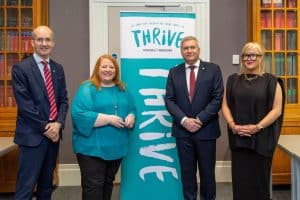 Dr Karen Orr and Claire Humphrey closed the conference by aligning their Conference Calls to Action with these three core themes of PLACE (asking for visibility of place-based approaches in the Programme for Government), PEOPLE (encouraging equitable engagement of those who live and work in communities) and PROCESSES (calling for investment in the systems needed for place-based change – funding, impact and implementation).
Dr Karen Orr and Claire Humphrey closed the conference by aligning their Conference Calls to Action with these three core themes of PLACE (asking for visibility of place-based approaches in the Programme for Government), PEOPLE (encouraging equitable engagement of those who live and work in communities) and PROCESSES (calling for investment in the systems needed for place-based change – funding, impact and implementation).
The synergies, resonance, energy and passion in the room over the course of the two days were clear indicators of the willingness of agencies (statutory and non) to move beyond current systems and processes towards more collaborative, place-based and evidence informed practices, in order to achieve truly child-centred and holistic services that best meet the needs of our children and young people, particularly those most vulnerable and furthest from opportunity.
Speaking about the event, Dr Karen Orr said ‘The energy and enthusiasm evident during the ‘Collaborate for Impact’ conference has been a clear endorsement for the place-based collaborative efforts championed during this two day conference. CREU are proud to have brought their expertise to this conference and to the THRiVE Learning Partnership. We look forward to maintaining the energy and connections made as we work to improve the educational opportunities and outcomes for all children and young people’
One month on from the Conference and organisers, Dr Karen Orr (CREU) and Claire Humphrey (THRiVE) are considering next steps… stay tuned!
For further information and recourses related to the conference, please click here.
For further information regarding the THRiVE Learning Partnership, please contact Dr Karen Orr (K.Orr@Stran.ac.uk).
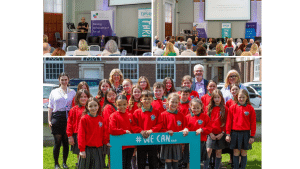
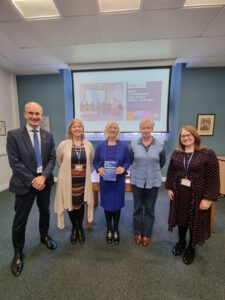

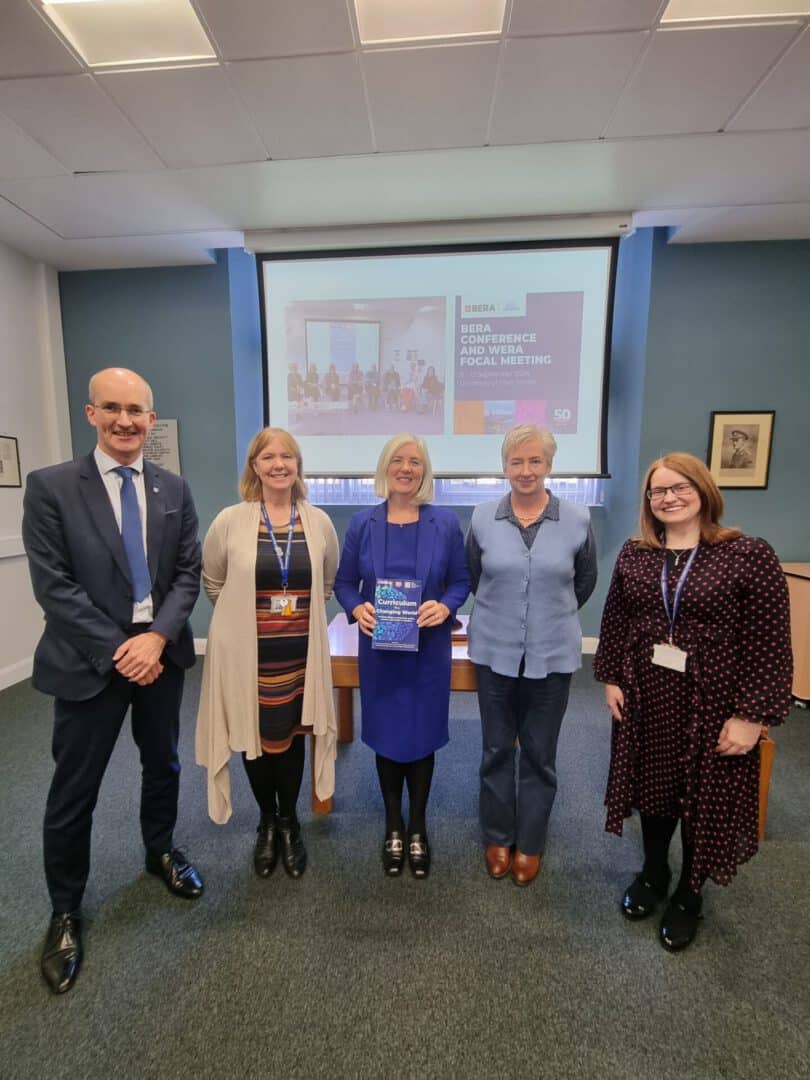
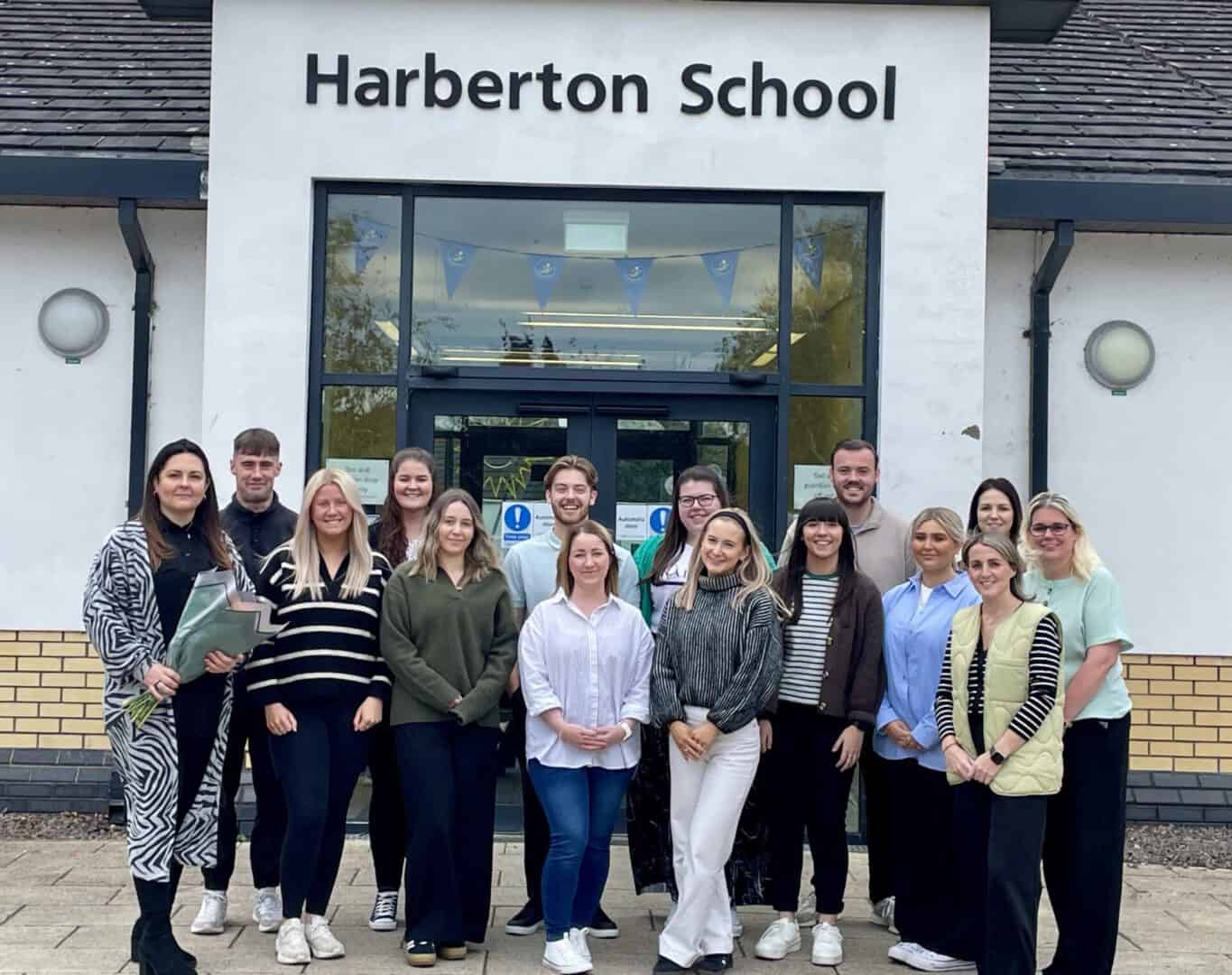
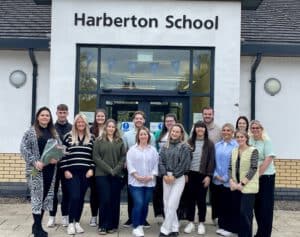


 On Saturday 5th October, Stranmillis University College was delighted to welcome the first ever cohort of Doctoral students to the campus to meet their fellow students, their lecturing team and senior staff from across the Stran community.
On Saturday 5th October, Stranmillis University College was delighted to welcome the first ever cohort of Doctoral students to the campus to meet their fellow students, their lecturing team and senior staff from across the Stran community. 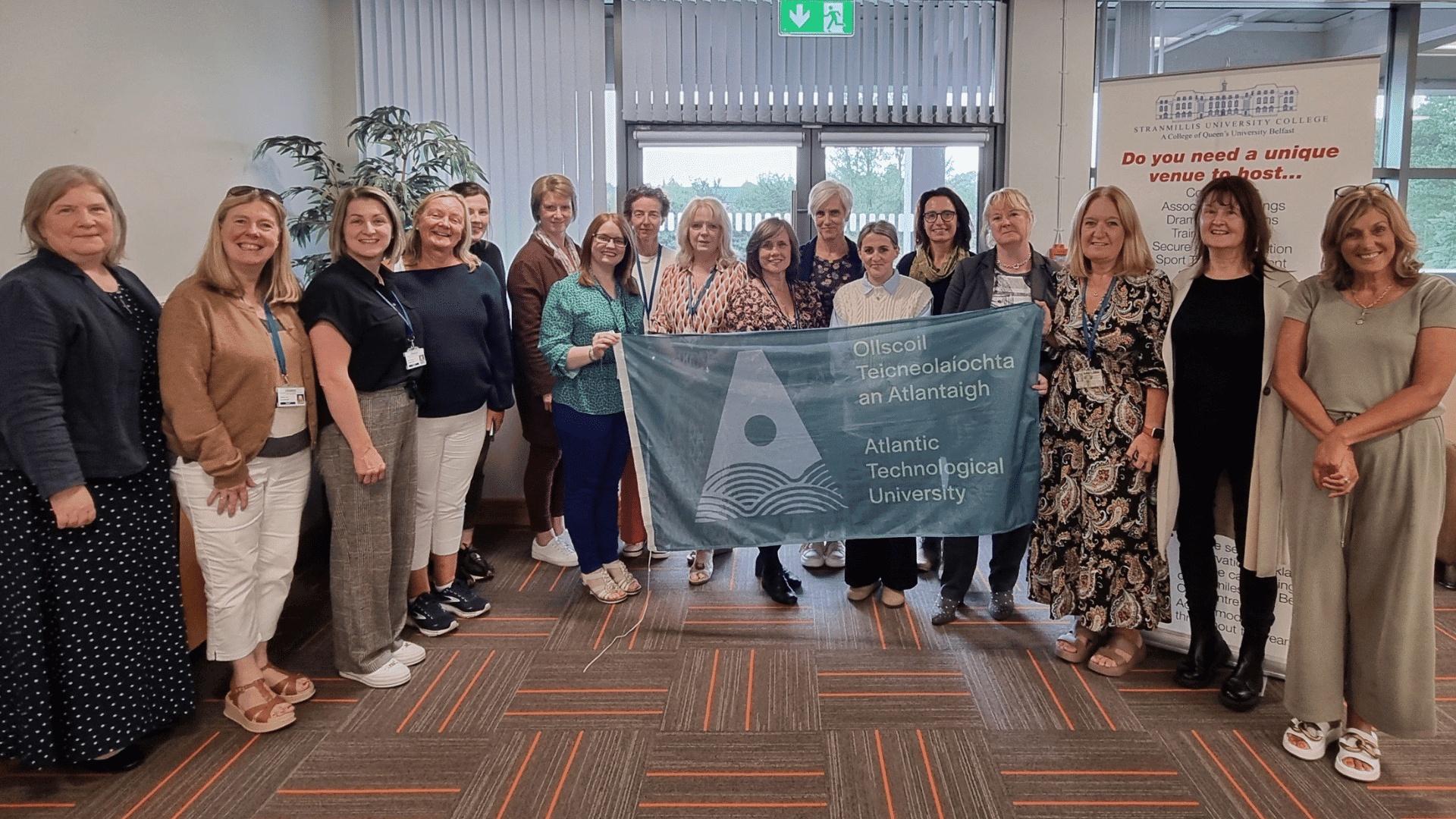
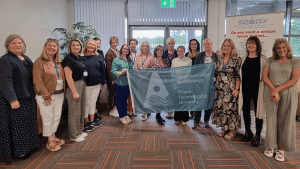 On Wednesday 11th September, Stranmillis University College (SUC) had the pleasure of welcoming a team of Early Years Lecturers from Atlantic Technological University (ATU), a multi-campus university based in the west and northwest of the Republic of Ireland.
On Wednesday 11th September, Stranmillis University College (SUC) had the pleasure of welcoming a team of Early Years Lecturers from Atlantic Technological University (ATU), a multi-campus university based in the west and northwest of the Republic of Ireland.

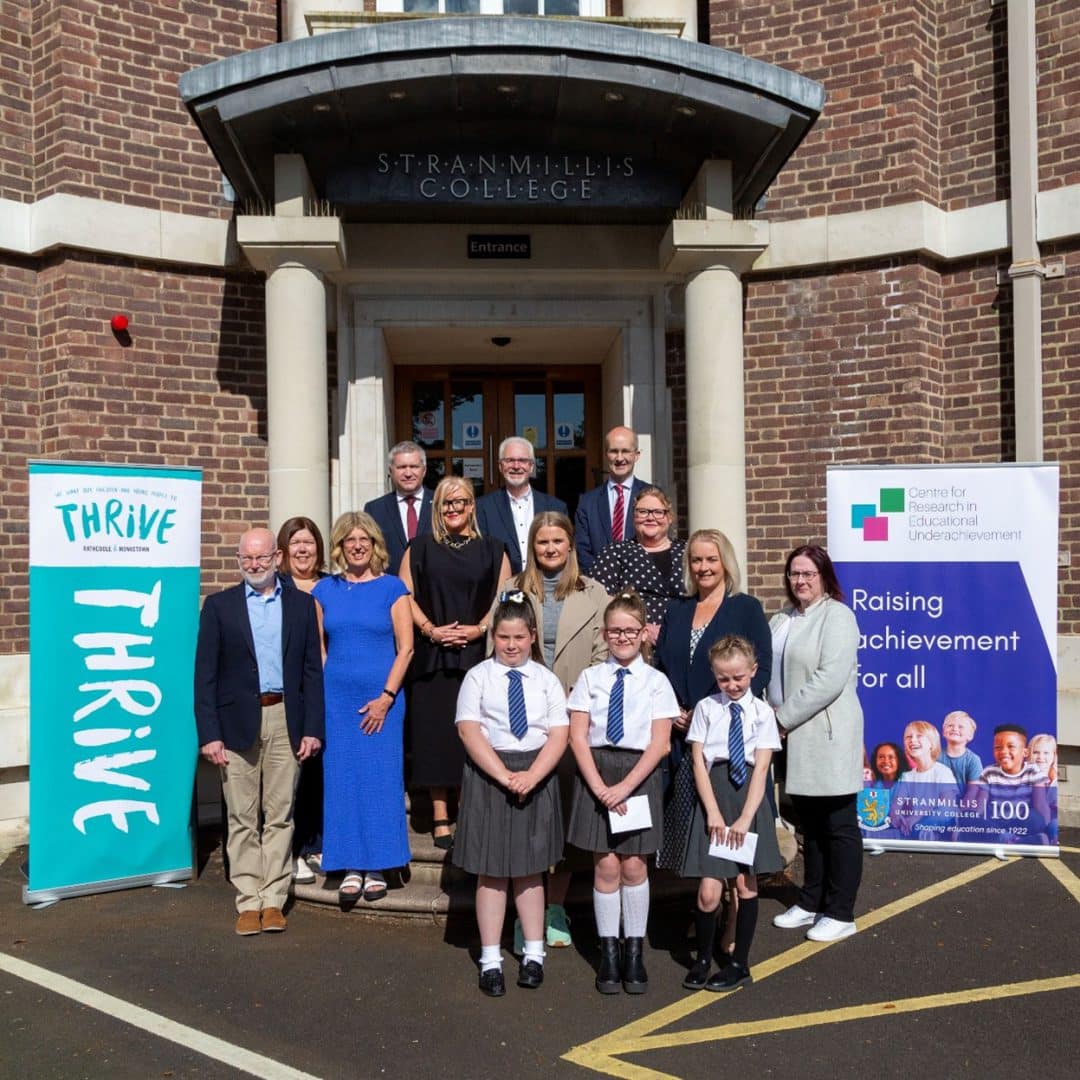
 On the 4th June 2024,
On the 4th June 2024,  Dr Karen Orr and Claire Humphrey closed the conference by aligning their Conference Calls to Action with these three core themes of PLACE (asking for visibility of place-based approaches in the Programme for Government), PEOPLE (encouraging equitable engagement of those who live and work in communities) and PROCESSES (calling for investment in the systems needed for place-based change – funding, impact and implementation).
Dr Karen Orr and Claire Humphrey closed the conference by aligning their Conference Calls to Action with these three core themes of PLACE (asking for visibility of place-based approaches in the Programme for Government), PEOPLE (encouraging equitable engagement of those who live and work in communities) and PROCESSES (calling for investment in the systems needed for place-based change – funding, impact and implementation).